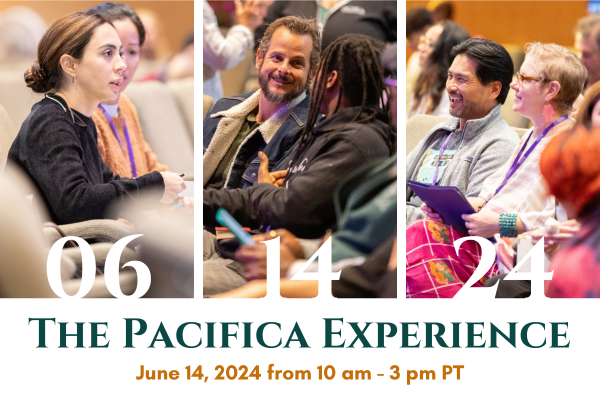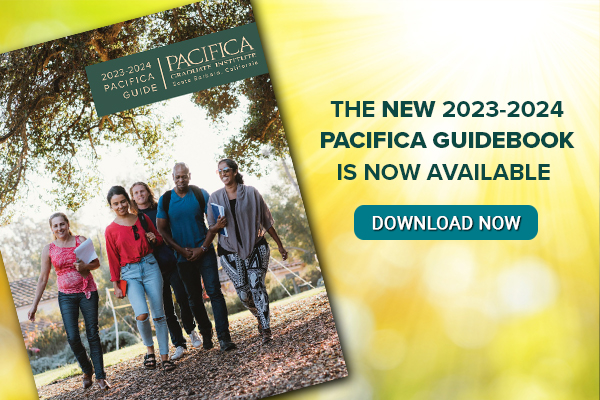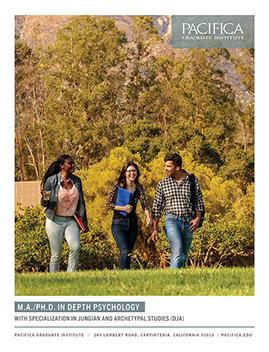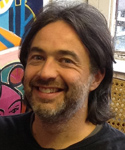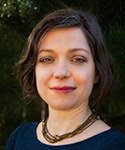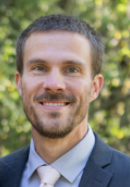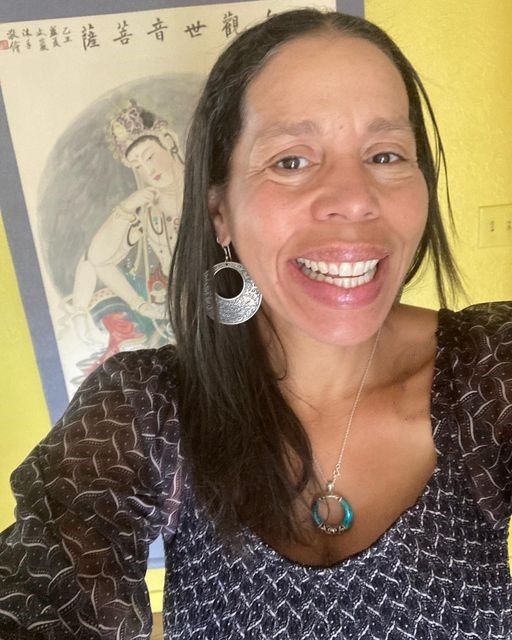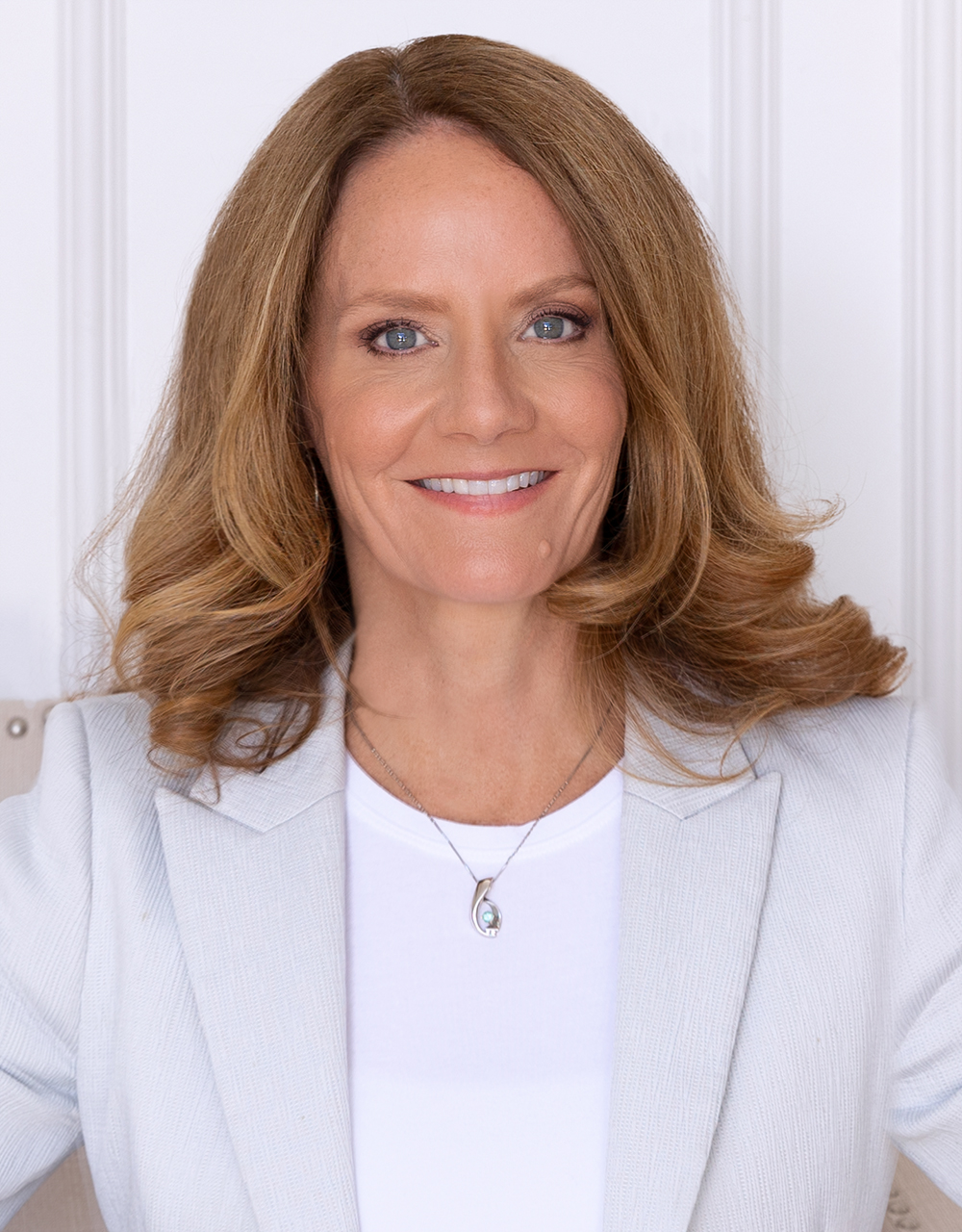Jungian Psychology and Archetypal Studies
Now Accepting Applications for Spring and Fall 2024
This rigorous, creative exploration of Jungian and archetypal psychology provides students with a range of theories, skills, and practices they can apply directly to their professional, personal, and creative lives, while addressing the collective challenges and opportunities at this moment in history.
Request More InformationM.A./Ph.D. in Depth Psychology with Specialization in Jungian Psychology and Archetypal Studies
About This Program
Pacifica intends to launch a fully online track of the Depth Psychology with Specialization in Jungian and Archetypal Studies (DJO), pending approval by the U. S. Department of Education. Updates available in June 2024.
*Please note that our fall DJA cohort will remain in its current hybrid format.
The Jungian and Archetypal Studies Specialization (DJA) is for students interested in exploring what Jung called archetypes: universal principles and organizing patterns that pre-condition and animate human experience from the depths of the collective unconscious, a dimension of the psyche common to each of us. The program curriculum enables students to develop a comprehensive understanding of the process of psychological transformation C. G. Jung called “individuation,” which leads to the realization of a greater personality or what he termed “the Self.” This process was the focus of Jung’s study of religious and alchemical symbolism. Inspired by Jung’s understandings, James Hillman went on to develop archetypal psychology, which emphasizes the way mythic figures provide root metaphors for understanding the psyche. By engaging life with a mythopoetic vision, we can perceive the gods and goddesses as present to all things and take up the work Hillman called “soul-making.” This rigorous, creative exploration of Jungian and archetypal psychology provides students with a range of theories, skills, and practices they can apply directly to their professional, personal, and creative lives, while addressing the collective challenges and opportunities at this moment in history. For those called to explore the personal and collective psyche, this program of study provides a unique opportunity to engage with, apply, and advance depth psychological theories and practices within the Jungian and archetypal traditions. Building on the work of C.G. Jung and James Hillman, students consider approaches to the psyche that foster healing, transformation, self-expression, creativity, and the development of consciousness.
Students in the Jungian Psychology and Archetypal Studies Specialization
- Critically explore a range of topics central to our understanding of the role of the unconscious psyche in human experience, such as healing, myth, dream, art, soul, spirit, ecology, religion, creativity, personal transformation, individuation, the development of consciousness, and more.
- Deepen the capacity for imaginal, symbolic, mythic, critical, theoretical, and archetypal thinking and being in the world, in order to better confront our present collective challenges.
- Engage with the creative, dynamic unconscious in both its personal and collective dimensions.
- Hone the expression of their unique voice and vision through courses in research, writing, publication, and presentation.
- Study side by side with Jungian scholars and practitioners interested in envisioning new possibilities for depth psychological understanding and transformative practice, both individually and culturally.
- Read deeply and broadly from The Collected Works of C.G. Jung, Jung’s The Red Book, and other core texts in the depth psychological tradition.
- Evaluate the limitations and potentials of Jungian and archetypal psychology within contemporary contexts.
The Jungian and Archetypal Studies specialization moves depth psychology from the clinical consulting room out into the wider world.
People who are enrolled in our academic programs with an online component will tell you that community and intimacy build quickly in this environment. While you may not “see” your classmates every month, you will “hear” from them weekly. In fact, online learning is particularly conducive to hearing the voices of all students, as it requires participation from everyone; students who normally may be very quiet in a traditional classroom may be more comfortable “speaking” online. In this hybrid program, more than half of the direct instruction for each course is meeting face-to-face with your classmates. Over those four days per quarter on campus, you will continue online discussions over shared meals, watch films and have social time, attend classes and guest lectures, and work together in pairs and groups. Community has been at the heart and soul of this specialization from its inception. In 1948, when Jung gave his dedication speech on the occasion of the founding of the C.G. Jung Institute in Zürich, he called for a community of scholars to come together to imagine extensions for depth psychology in the world. This specialization aims to be such a community, one where students and faculty come together to support each other in exploring, applying, and advancing Jungian and archetypal studies “without limit” in the world. As part of every course, students will share their understanding of how the material is relevant to their lives and their vocational callings, with their classmates and instructors serving as sounding boards and tuning forks who will provide support, share resources, and help refine each other’s theories and practices.Feature Blog Posts and Multi-Media
- The Rebirth of the Hero: Mythology as a Guide to Spiritual Transformation
- The Return of the Goddesses-in Mysteries!
- Who was Carl Jung and why should we study him and his work?
- Archetypal Reflections: Dr. Keiron Le Grice on Jungian and Depth Psychologies
- Star Wars: A Missed Opportunity
- Jung, Individuation, and Film
- Titanic Film: A look at the cultural aspect of Jungian Psychology (mp3)
“By stimulating and supporting the rigorous scholarship and creative research of our students, we hope to further the crucial task of advancing depth psychological ideas and practices as catalysts for individual and cultural transformation.”
Chair & Faculty
Since its inception in 1996, the Depth Psychology Program has made a radical commitment to tend the history and the future of depth psychology. The program has held in the center of its mission two related commitments: to educate students in the history and lineage of depth psychology and to explore the non-clinical frontiers of the field. The Jungian and Archetypal Studies specialization of the Depth program continues this tradition.
The faculty is comprised of esteemed international scholars with a broad range of areas of expertise. They introduce students to foundational theoretical constructs in the field while helping them to engage critically and creatively with the course material. The coursework itself is aligned with Jung’s emphasis on the “ineluctable psychological necessity” of individuation, the process by which one might attain deep self-knowledge, further the development of consciousness, and better understand the unconscious factors shaping human experience.
Scholarships
Global Innovators Scholarship Offered to newly admitted students entering into one of the following programs: M.A. Engaged Humanities and the Creative Life, or M.A./Ph.D. Depth Psychology with Specialization in Jungian and Archetypal Studies. Average awards range from $2,000-$3,000. The number and amount of individual awards is contingent upon the number of eligible applications received. This scholarship is renewable provided recipients meet the required grade point average.
Education Assistance The Education Assistance Scholarship is sponsored by Pacifica Graduate Institute and offered to new and returning students based on extreme financial hardship and strong academic excellence. Awards are made annually at the beginning of each academic year. The award is $1,000 to be equally divided over the academic year. This scholarship is not renewable, and students must apply each academic year. Students enrolled in the Ph.D. and Psy.D. Dissertation phase of their programs are not eligible for scholarship consideration.
Yellow Ribbon Matching Scholarship Pacifica Graduate Institute is pleased to announce that we have entered into an agreement with the Veteran’s Administration in support of veterans continuing their education under the Post 9/11 GI Bill. Pacifica has agreed to provide up to ten Yellow Ribbon Scholarships each year for qualifying veterans under the Post 9/11 GI Bill on a first-come first-serve basis. Students in the M.A. Counseling program will qualify for up to $6,500 per year, M.A. Engaged Humanities and Creative Life will qualify for up to $5,400 per year, and those in the doctoral programs will qualify for up to $7,800 per year.
Request Information
Learn MoreProgram FAQs
Why make this specialization a hybrid one?
Prospective students from around the country and from other parts of the world have long been requesting a degree program that allows them to study at Pacifica without making the 9 to 10 trips to campus a year that the other degree programs require. This specialization is in response to that request. Being in residency only 4 times per year over an extended weekend allows some students to participate at Pacifica who might otherwise not be able to do so.
What does a typical quarter look like?
Each quarter lasts approximately 11 weeks, though they may extend longer to accommodate holidays and other breaks for rest, relaxation, and reflection. Students take two 3-unit courses each quarter for the three years of coursework. The first few weeks of each quarter (typically modules 1 through 3) are spent reading at home and engaging in discussion and activities with the faculty and one’s classmates in D2L. Students and faculty then gather together on campus for the residential weekend (see below). On returning home, students resume using D2L to continue reading, discussing, researching, and completing final assignments.
What can I expect during a residential session?
Classes held in Santa Barbara begin at 8:30 a.m. on Thursdays, and end at 4:00 p.m. on Sundays.
Classes are in session between 7 and 8.5 hours per day. Faculty members are encouraged to combine lectures, multimedia features, student presentations, group discussion, and experiential activities to accommodate different styles of learning and to keep the pace of the day flowing. Students can meet with faculty one-on-one during lunch and dinner breaks, and every session contains an opportunity to meet as a group with the cohort’s faculty liaison member and/or program chair to address concerns, raise questions, or discuss how the program is progressing.
I'm on a computer so much for work already. How much time should I expect to be hybrid?
Students are expected to log in to our learning management system (called Desire2Learn) several times a week, for approximately three to four hours per week. This will typically include time spent reading any presentations, posting and responding to discussion boards, listening to an audio file, or watching a video. For the remainder of hours of study, you will be reading.
Experience has shown that students learning in D2L have a tendency to spend more time per week “in class” than their residential peers. We have several measures in place to protect our hybrid students from burnout: We designate certain weeks “reflection weeks,” where students and faculty are not using D2L, including the week when students are traveling to and taking classes on campus and the last week of the quarter, allowing students time to complete their final assignments. Periodic breaks are built into the academic calendar. In addition, we maintain clear guidelines around how much material there is to read, especially with discussion boards: Faculty restrict discussion posts on D2L to no more than 2 or 3 paragraphs, or 250-300 words. Even with these protective measures in place, however, students should be prepared for a rigorous course of study, and should carefully assess whether they have the time to enter graduate school at this moment in their lives.
Are there required days or times I have to use D2L?
Pacifica requires that all students log into D2L on the first day of the quarter, and post something that indicates attendance. This is a Federal Financial Aid requirement, and it can be done anytime during the 24 hours of that first day. Other than this mandatory sign-in requirement, most assignments will be due weekly (with a Monday 11:59 pm deadline for initial discussion posts) so you can log in and complete them at your convenience.
Besides participating in D2L, what other sorts of work should I expect?
As with any graduate program, you will do assigned reading for each week of the program. The number of books and articles will vary by instructor, but in general expect between 800-1,000 pages of reading per course, or approximately 100-150 pages per week. Other assignments may include journal reflections, virtual partnered work, research, and paper-writing. In general, you should expect to spend approximately 20 hours a week completing your studies.
How did you come up with 20 hours?
In academia, time is measured by credit hours. A credit hour is a measure of the amount of work required of graduate students as established by federal regulations to determine equivalency among accredited institutions of higher learning. It is represented in terms of the number of hours in the classroom or direct faculty instruction, as well as the minimum number of hours of out-of-class work needed for students to achieve the learning outcomes identified for a course.
At Pacifica, we remain aligned with federal standards that define a credit hour as the equivalent of ten hours of classroom or direct faculty instruction plus a minimum of three hours of out-of-class student work for each week of every quarter, a 1:3 ratio between instruction and independent work.
What can I expect from faculty in a hybrid program?
When you are on campus, your experience of a faculty member will be the same as any residential student at Pacifica and will include a combination of lecture, discussion, group work, student presentations, engagement with film and art, and experiential learning exercises. Faculty will be available for office hours during meals so students can sign up for one-on-one time together. Teaching styles vary, but, in general, learning takes as its motto that instructors are to be “guides on the side” or “mentors in the middle” rather than “sages on the stage.” Learning is truly a communal venture, with students benefiting greatly from the interaction with their peers and not just with the faculty.
Faculty members are asked to review and participate in the discussions on D2L two or three times per week. They will typically offer general guidance to the group, rather than to individual students in this format. In other words, the students may receive feedback on each of their postings; however, faculty will help to facilitate the discussions for the group by offering insights and commentary. Individual faculty members’ personal teaching styles may differ, so expect variations in this regard.
Faculty members are also asked to be available for students for phone or Skype conversations during the quarter. Faculty will list their contact details on the syllabus. It is preferable that students send a request for a phone conversation to the faculty via email, indicating the content of the conversation, and suggesting a few good times they can be reached. Our faculty body is comprised of academics and analysts with full lives, and it is not expected that they are on D2L or available every day of the week; the expectation is the same as it is for students, that both will log in several times a week.
Who are the faculty teaching in this specialization?
The program is taught by scholars in the field and Jungian analysts drawn from Pacifica’s core faculty and supplemented with adjuncts from around the world. Faculty members are selected not only for their knowledge and experience in the subject matter, but for their interest in mentoring students in applying and advancing Jungian and archetypal studies beyond the traditional analytic encounter.
Part of the reason I'm drawn to Pacifica is for the opportunity to study with people of like minds. How does a hybrid program lend itself to a sense of community?
People who have been enrolled in our learning programs will tell you that community and intimacy builds quickly in that environment. While you may not “see” your classmates every month like a traditional Pacifica student, you will “hear” from them weekly. In fact, using D2L is particularly conducive to hearing the voices of all students, as it requires participation from everyone; students who normally may be very quiet in a traditional classroom may be more comfortable “speaking” in D2L.
Remember, too, that you’ll spend a little more than half of the direct instruction for each course meeting face-to-face with your classmates, and over those four days per quarter on campus, you’ll continue discussions over shared meals together, you’ll watch films and have social time together, you’ll attend classes and guest lectures together, and work together in pairs and groups. Community has been at the heart and soul of this specialization from its inception. In 1948, when Jung gave his dedication speech on the occasion of the founding of the C.G. Jung Institute in Zurich, he called for a community of scholars to come together to imagine extensions “without limit” for depth psychology in the world. This specialization aims to be such a community, one where students and faculty come together to support each other in exploring, applying, and advancing Jungian and archetypal studies “without limit” in the world. As part of every course, students will share their understanding of how the material is relevant to their lives and their vocational callings (with their classmates and instructors serving as sounding boards and tuning forks). Students provide support for each other, share resources, and help refine one another’s theories and practices.
Besides creating a community of scholars and researchers, this specialization has as part of its vision the creation of a community of writers. D2L, as the learning management software, is an ideal tool for honing one’s written expression. In addition to the weekly discipline of posting and reading other students’ posts in D2L, students will be encouraged early on to form writing groups, to read each other’s papers, to provide supportive feedback and offer constructive commentary on those papers, and to seek venues for publication for their papers in order to reach an even larger community.
I've never used D2L before. What sort of support is available to me?
When it gets closer to the start of the program, all students will be invited to participate in a tutorial to become familiar with the learning management system, and we will invite you into a Resource Center where you can begin to explore the delivery system. For ongoing questions or support once you begin the program, you may contact our excellent hybrid learning team via phone, or chat with them on D2L. The Program Administrator will also be available to answer your questions and provide support.
How familiar do I need to be with depth psychology or with Jungian and archetypal studies before entering the specialization?
It is expected that students will enter the program with varying degrees of knowledge about depth psychology. For students with less familiarity with depth psychology, our admissions counselors can make some recommendations of books to begin to read, and we may explore this with you as well at the interview stage.
What do students do with an advanced degree in depth psychology?
The Jungian and Archetypal Studies program is a wide-ranging, multidisciplinary program of study, covering ideas and practices that lend themselves to application in many different fields. Some of our students and graduates work as therapists, some are involved in the arts, some become teachers and writers, and others apply the insights of depth psychology in corporate life. Some students come into our program knowing exactly what they want the degree for, or what they plan to do with it, but it’s just as common for students to enter the program saying “I don’t exactly know why I’m here, or what I’m going to do with the degree when I’m finished, but I just know I’m supposed to be here, and the answers will come.” As James Hillman writes in The Soul’s Code, vocation or “calling” is “the essential mystery at the heart of each human life.” Throughout the program, we’ll explore that mystery in classes and reflection exercise, and we’ll raise the question “What can we do with this material in the world?” in every course you take. It is our hope that through this education for individuation rather than education for information, our students will discover, uncover, or recover the heart of the work they have been called here to do.
Curriculum Overview
A BLENDED HYBRID/LOW-RESIDENCY PROGRAM
This transformative and scholarly degree program takes advantage of online technology to allow students to work and learn in their home environments, while also taking part in engaged community sessions on Pacifica’s Ladera Lane Campus.
Classes begin online and meet during four-day residential sessions (Thursday, Friday, Saturday, Sunday) once per quarter. During these on-campus sessions, students have access to the Institute’s extensive resources and are able to engage with their classmates and instructors face-to-face, combining lecture, discussion, and experiential and embodied learning. Residential sessions also allow time for exploration and community building.
First Year
- Introduction to Depth Psychology - DJA 700, 3 units
- Jungian Psychology: The Individuation Journey - DJA 720, 3 units
- C. G. Jung in Context - DJA 710, 3 units
- Dreamwork: Tending the Living Images - DJA 825, 3 units
- Complexes: Jung’s “Royal Road” to the Unconscious - DJA 810, 3 units
- Archetypes: Universal Patterns of the Psyche - DJA 800, 3 units
- Reflective Studies I: Foundations for Research - DJA 920, 3 units
- Mythopoetic Imagination: Viewing Film, Art, and Literature from a Jungian Perspective - DJA 805, 3 units
Second Year
- Archetypal Psychology - DJA 730, 3 units
- Imaginal Ways of Knowing: Active Imagination, The Red Book, and Psychic Creativity - DJA 820, 3 units
- Depth Psychology and the Mythic Tradition - DJA 815, 3 units
- The Poetic Basis of Mind - DJA 870, 3 units
- Synchronicity and the New Sciences - DJA 855, 3 units
- Archetypal Cosmology and Astrological Hermeneutics - DJA 880, 3 units
- Psychological Types - DJA 835, 3 units
- Reflective Studies II - DJA 930, 3 units
Third Year
- Somatic Studies: The Psyche-Soma Connection - DJA 845, 3 units
- Psychoanalytic Openings: Evolving Understandings of the Human Personality in Psychoanalysis and Analytical Psychology - DJA 740, 3 units
- The Alchemy of Transformation - DJA 865, 3 units
- Depth Psychology and the Sacred: Approaching the Numinous - DJA 850, 3 units
- Dissertation Development - DJA 950, 3 units
- Technology and Psyche - DJA 822, 3 units
- Reflective Studies III - DJA 940, 3 units
- Ecopsychology: The Psyche in Nature - DJA 860, 3 units
Graduation Requirements
Degree Requirements for Graduation
- Students must complete a total of 90 quarter units for the Ph.D. to fulfill the degree requirements for graduation. A minimum grade of C is required in each completed course. A cumulative grade point average of 3.0 must be maintained.
- Students must attend at least 2/3 of each course.
- During the second year of coursework, students must pass a written comprehensive examination. The M.A. degree is awarded when the exam is passed and 48 units of first-year and second-year coursework are completed.
- Students must prepare and submit a scholarly article suitable for publication.
- Students must pass an oral examination at the end of the third year of coursework.
- Students must submit and defend an original dissertation accepted by the faculty.
Depth Psychology – Written Comprehensive Examination
In the Jungian and Archetypal Studies specialization of the Depth Psychology program, the written exam is taken after successful completion of at least six quarters of the first two years of coursework. This exam is an evaluation of the student’s understanding of the fundamentals of Jungian depth psychology and archetypal psychology covered during the first two years of the program, in accordance with specific program learning outcomes. The exam serves two main purposes:- To ascertain the student’s readiness and ability to continue on into the third year of coursework, and beyond this to undertake dissertation work for the successful completion of a Ph.D.
- To provide an opportunity for students to integrate and consolidate the first two years of coursework.

